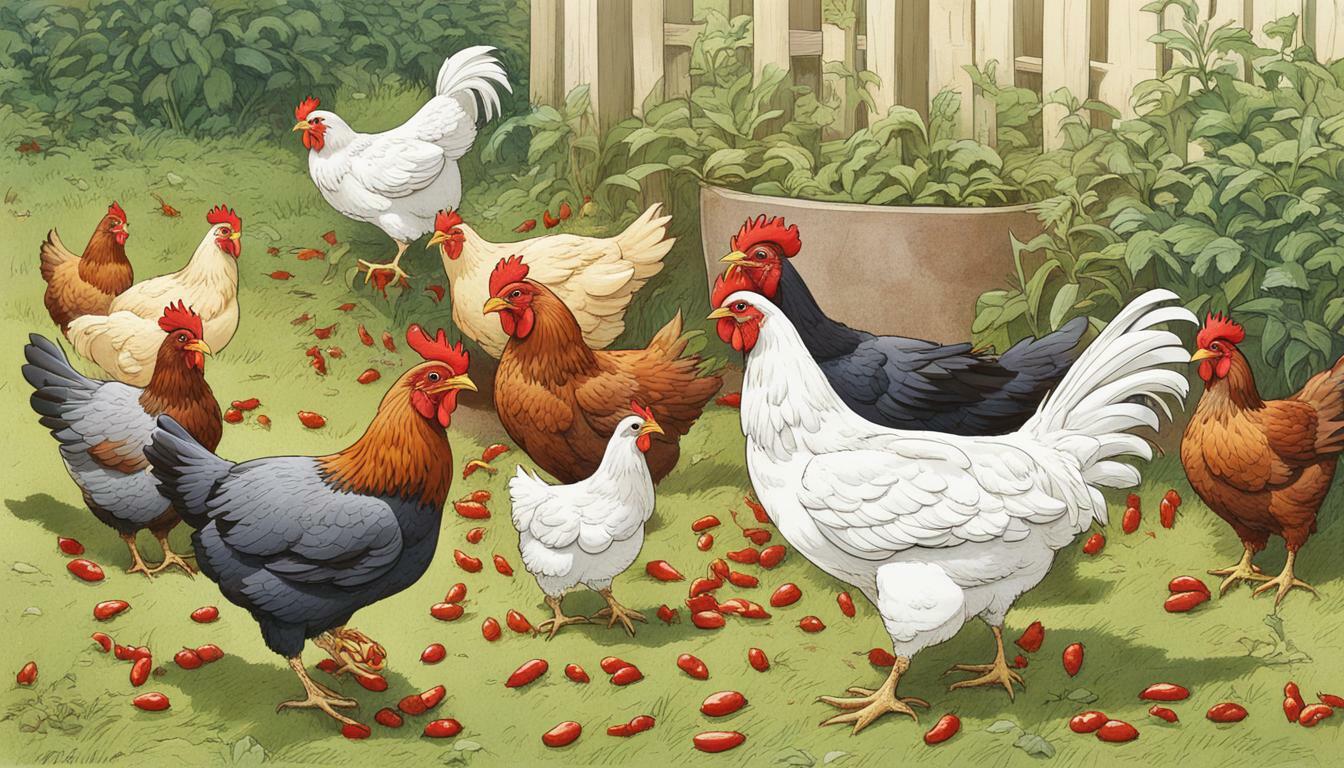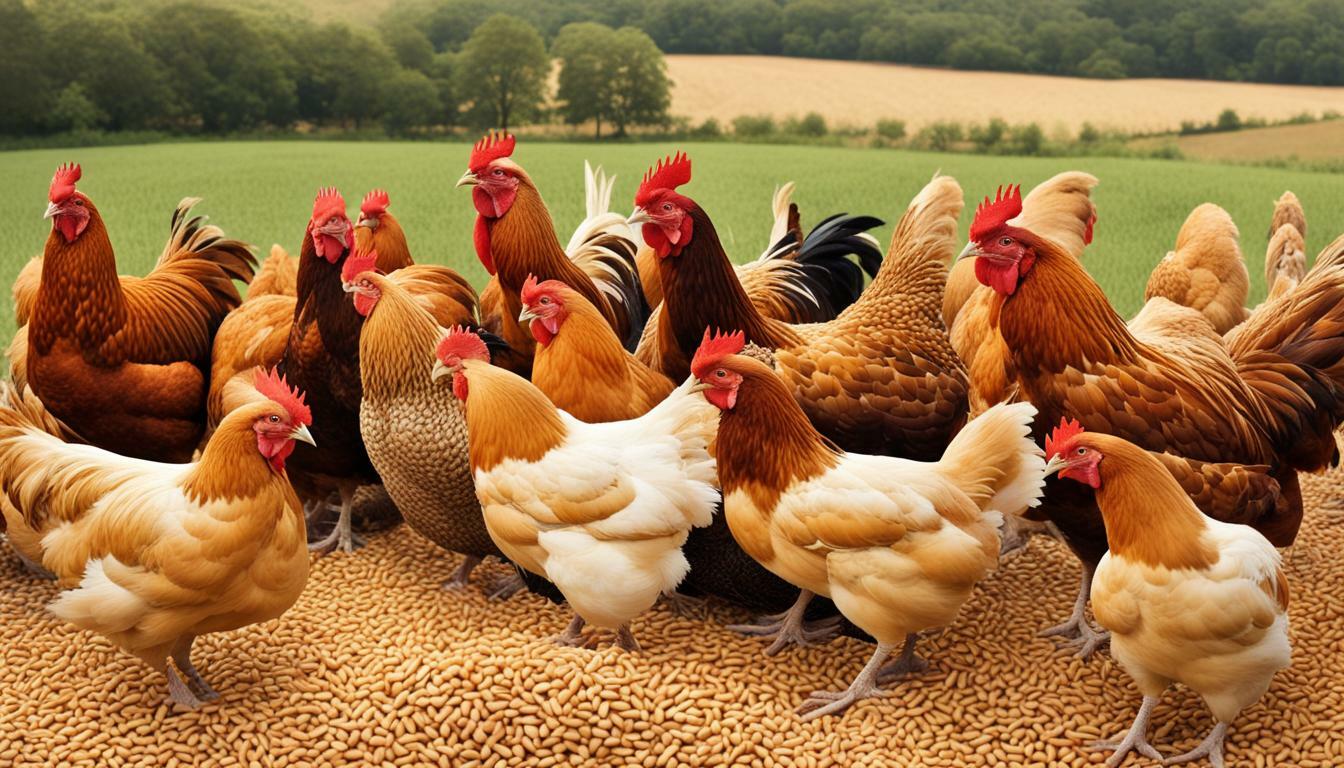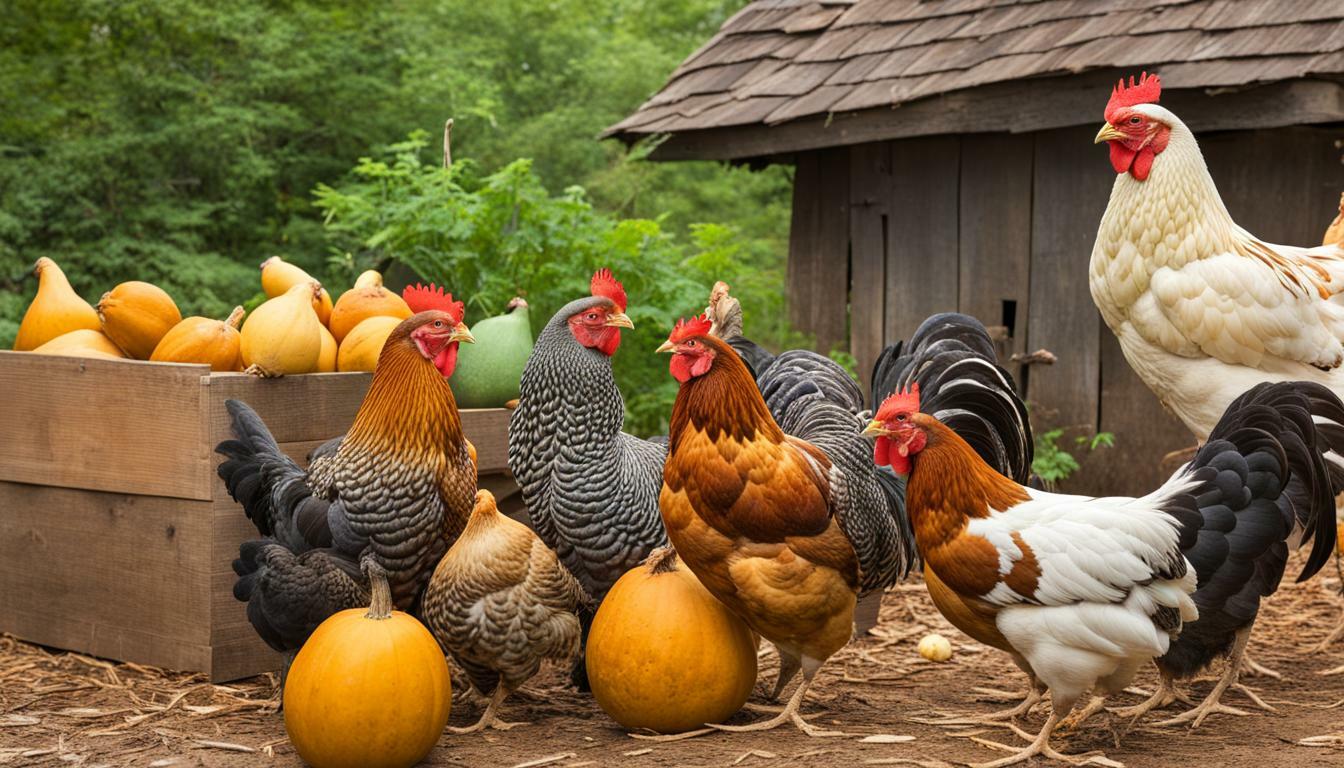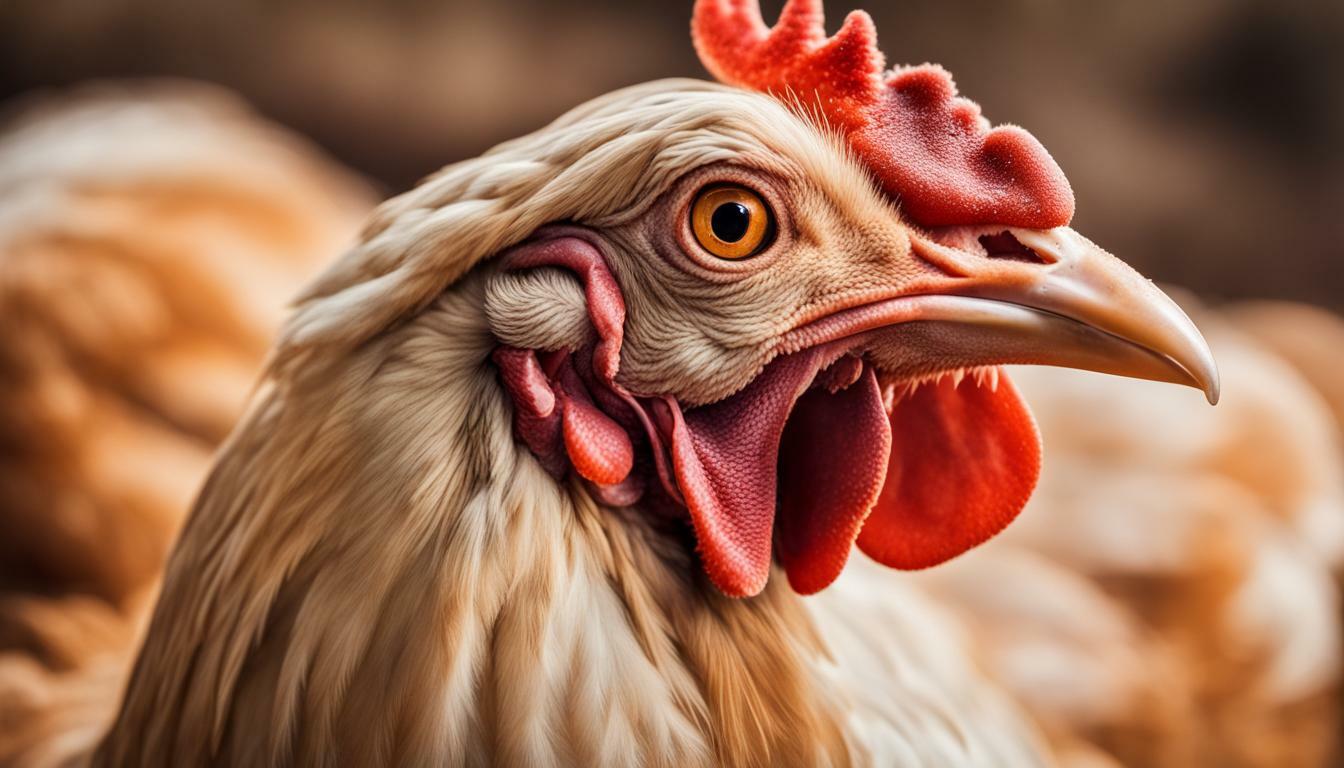Can Chickens Eat Goji Berries? Discover the Answer Here!

Table of content:
- Are Goji Berries Safe For Chickens?
- What Are The Benefits Of Feeding Goji Berries To Chickens?
- How Many Goji Berries Can Chickens Eat Per Day?
- Should I Dry or Give Fresh Goji Berries to Chickens?
- When Should I Introduce Goji Berries to Baby Chicks?
- Do Goji Berries Boost Chicken Immunity?
- Do Goji Berries Increase Chicken Egg Production?
- Are Goji Berries High in Calcium for Chickens?
- Can Goji Berries Replace Chicken Feed?
- Final Thoughts
Goji berries are a nutritional powerhouse. They offer many potential health benefits for humans. But can chickens eat goji berries too?
The short answer is yes! Goji berries are safe and even beneficial for chickens to eat. Let’s discuss the pros and cons of feeding goji berries to chickens.
Are Goji Berries Safe For Chickens?
Are goji berries safe for chickens? Absolutely.
Goji berries contain no toxic compounds harmful to chickens. They can eat both fresh and dried goji berries safely.
Goji berries offer antioxidants, vitamins, minerals, fiber, protein, and polysaccharides. This nutritional profile benefits chicken health and egg quality.
Feeding goji berries moderately provides health advantages without risk. But remember goji berries should be a treat, not a meal replacement.
What Are The Benefits Of Feeding Goji Berries To Chickens?
What are the benefits of feeding goji berries to chickens? Here are some of the top benefits:
- Boost immunity – Goji berries contain polysaccharides and antioxidants. These compounds may support chicken immune health.
- Support egg production – The carotenoids in goji berries, like zeaxanthin, promote egg production and quality.
- Improve egg nutrition – Goji berries provide omega fatty acids, vitamin A, and calcium. This enriched nutrition may transfer to eggs.
- Act as antioxidants – Goji berries are high in antioxidants. These can reduce inflammation and cell damage in chickens.
- Increase calcium absorption – Goji berries contain fiber and vitamin D to aid calcium absorption for bone health.
- Support joint health – The antioxidants in goji berries may prevent cartilage damage and improve flexibility.
- Aid digestion – The fiber content in goji berries promotes healthy digestion and nutrient absorption.
So in summary, goji berries offer wide-ranging nutritional and antioxidant support for chickens. Let’s look at how much and how often chickens can eat them.
How Many Goji Berries Can Chickens Eat Per Day?
How many goji berries can chickens eat per day? Here are some guidelines:
- 10 berries per day – This amount is suitable for most standard-sized chickens as an occasional treat.
- 1 tablespoon of dried berries per day – For dried goji berries, 1 tablespoon is a good serving size per chicken.
- 5% of daily diet – Goji berries should comprise only 5% of a chicken’s total daily food intake.
- Free-range up to 20 berries – Free-range chickens that forage can eat up to 20 goji berries daily.
- Scale servings for size – Adjust portions based on chicken size. Smaller or bantam breeds should eat fewer berries.
The most important rule is moderation. While nutritious, goji berries should not become a staple food. Keep them as a supplemental treat only a few times per week.
Should I Dry or Give Fresh Goji Berries to Chickens?
Should I dry or give fresh goji berries to chickens? Both fresh and dried goji berries work well. Here are the pros and cons of each:
- Fresh – Higher moisture content. Fresher phytonutrients. Easier for chickens to eat. Spoils faster.
- Dried – Longer shelf life. Less mess and waste. More concentrated nutrients. Rehydrating dried berries can help.
Both forms provide benefits. Mix it up by offering chickens fresh berries sometimes and dried berries other times. Or try freezing fresh berries to preserve the nutrients longer. Either way, chickens will relish these treats.
When Should I Introduce Goji Berries to Baby Chicks?
When should I introduce goji berries to baby chicks? Here are some guidelines on goji berries for chicks:
- Wait until 3-4 weeks old. A chick’s digestive system needs time to develop.
- Goji berries may be too large initially. Chop into small pieces for chicks under 6 weeks old.
- Start with just a few pieces. Slowly increase to 5-10 pieces per chick.
- At 8 weeks old, chicks can eat whole goji berries in moderation.
- Monitor chicks after feeding to ensure proper digestion. Adjust portions if needed.
Goji berries provide many benefits for chicks too. Just introduce them slowly once the chick’s digestive system has matured. This will set up healthy eating habits.
Do Goji Berries Boost Chicken Immunity?
Do goji berries boost chicken immunity? Research indicates they can provide immune-enhancing benefits.
Goji berries contain high levels of polysaccharides. These are complex carbohydrates with antioxidant effects.
Studies show polysaccharides can help:
- Increase antibody production
- Modulate immune system response
- Fight viral and bacterial infections
The antioxidants in goji berries also support immune function. So feeding your flock goji berries may help boost immunity and resilience.
Do Goji Berries Increase Chicken Egg Production?
Do goji berries increase chicken egg production? Possibly. Goji berries offer key nutrients for egg-laying hens:
- Protein for egg formation
- Calcium for eggshell strength
- Carotenoids like zeaxanthin for yolk color and development
- Omega fatty acids for overall egg quality
The antioxidant activity may also promote ovarian health. This aids hormone balance for ovulation and laying.
While not proven, many chicken owners report more abundant, vibrant eggs after feeding goji berries. Try offering them to see if your hens lay more.
Are Goji Berries High in Calcium for Chickens?
Are goji berries high in calcium for chickens? Not particularly. Goji berries contain only trace amounts of calcium.
However, goji berries have other bone-supporting qualities:
- Aid calcium absorption. Goji berries provide vitamin D, magnesium, and fiber to help calcium absorb better.
- Prevent bone loss. The antioxidants in goji berries may protect bone mineral density as chickens age.
- Support cartilage. Collagen-protecting compounds like polysaccharides promote joint flexibility.
So while not high in calcium itself, goji berries offer many complementary nutrients. These work together to support strong, healthy chicken bones and eggshells.
Can Goji Berries Replace Chicken Feed?
Can goji berries replace chicken feed? No. Goji berries should never completely replace formulated chicken feed.
Chicken feed offers a balanced nutrition profile. This ensures chickens get the protein, carbs, vitamins, minerals, and amino acids they require.
While nutritious, goji berries lack many essential nutrients chickens need daily. They are best used only as a supplemental treat.
Offer small portions of goji berries just 2-3 times per week. Make sure your chickens always have abundant access to a high-quality feed formula.
Final Thoughts
In summary, goji berries are a nutritious treat that offers many benefits for chickens. Feel free to offer your flock a few berries 2-3 times per week. Just be sure not to overfeed.
Goji berries support chicken health, immune function, bone density, and egg production. Both fresh and dried goji berries work well. Adjust serving sizes based on your chicken’s age and size.
While chickens love goji berries, never use them to replace formulated feed. Maintain a balanced diet rich in protein, carbs, vitamins, and minerals. Then let goji berries be a supplemental snack for their concentrated antioxidant power.
With some common sense, you can safely feed goji berries to your flock. Your chickens will relish these tasty, nutritious morsels. So try incorporating this unique treat into their regular diet!
Welcome. I’m Adreena Shanum, the proud owner of this website, and I am incredibly passionate about animals, especially poultry. I founded adreenapets.com as a labor of love, stemming from my desire to share my knowledge and experiences with poultry enthusiasts worldwide.




